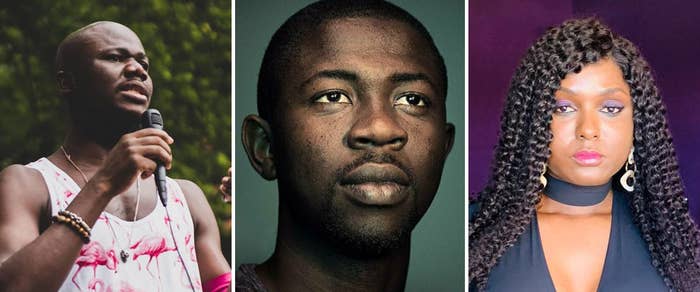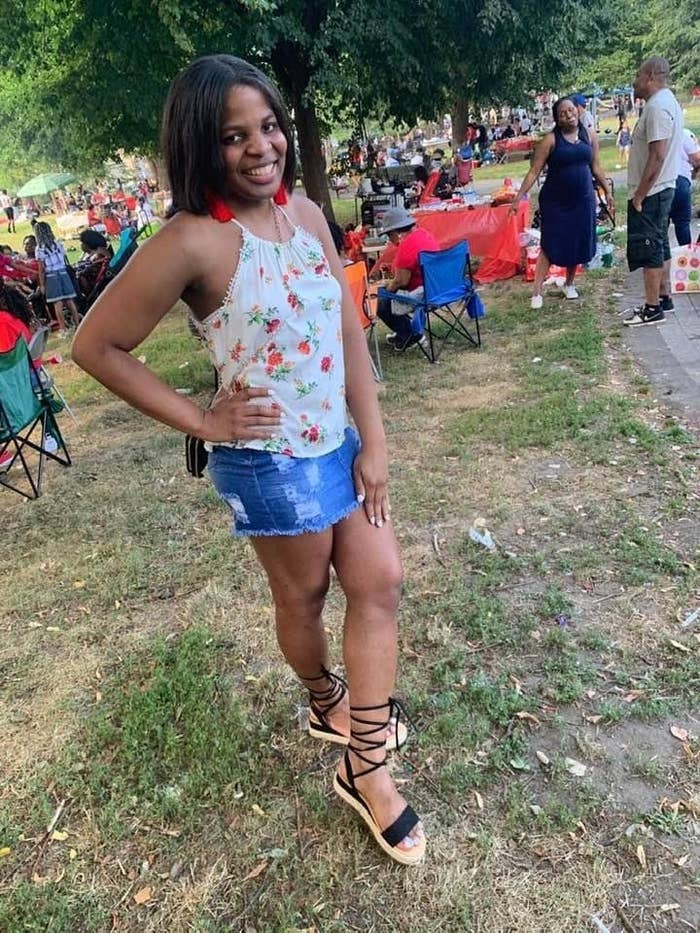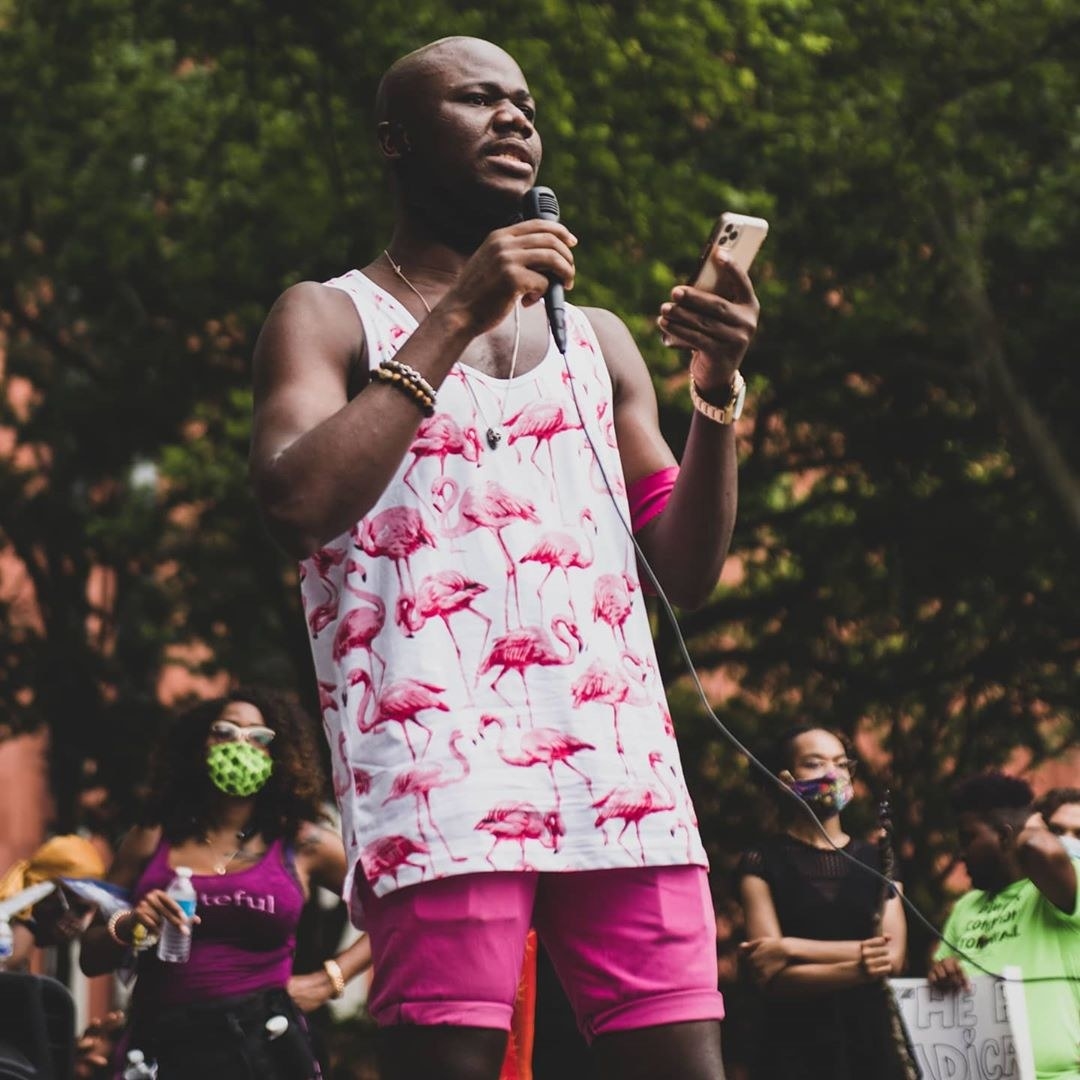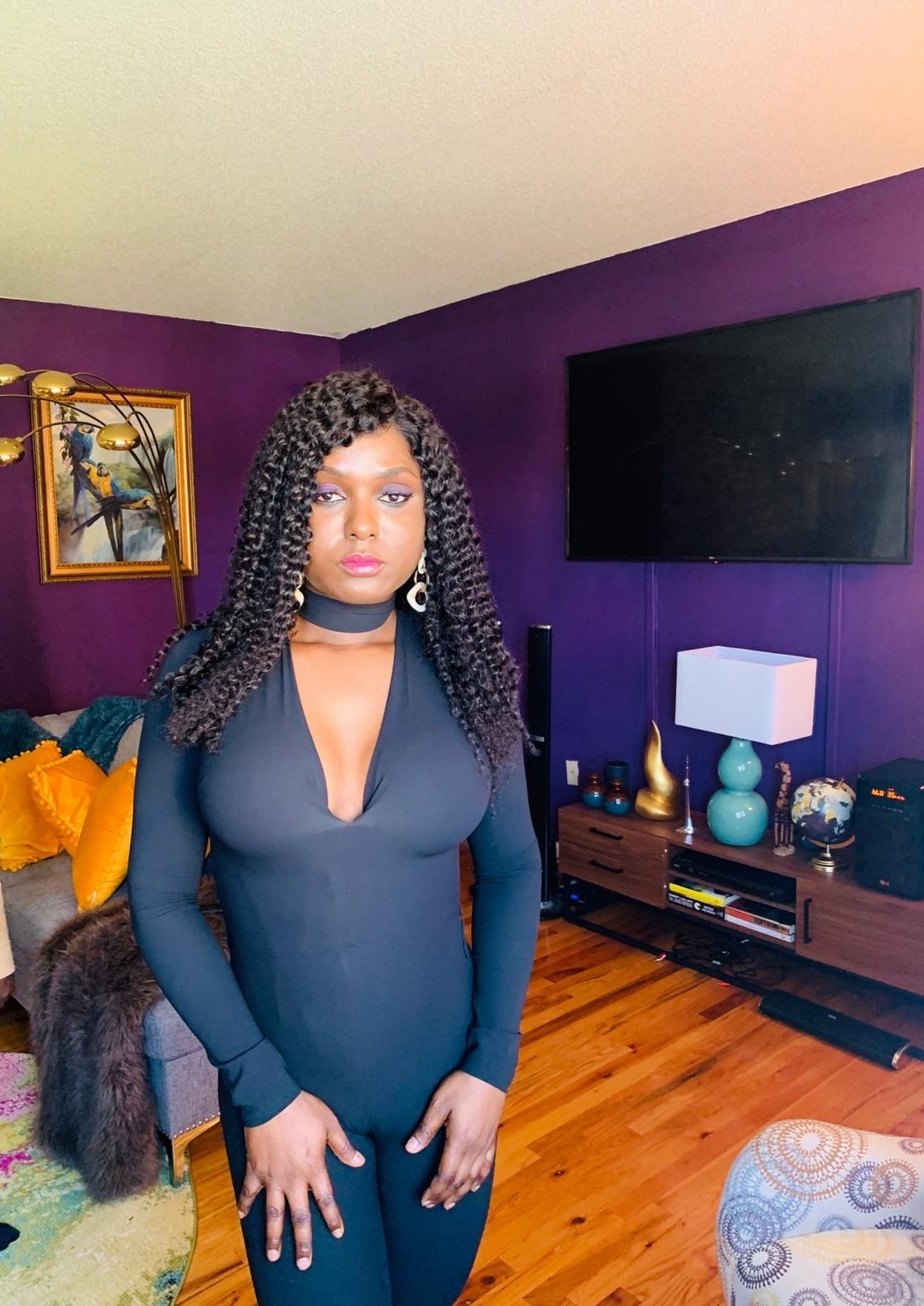
As a queer immigrant from Nigeria, I came to the US in 2016, fleeing persecution for being gay.
Before I arrived in the United States, I was ingrained with the mentality that the country was synonymous with freedom outside the walls of this country. But since I set foot in the US, just months before Donald Trump was elected to office, the narrative has changed.
As an immigrant seeking protection from the US, I was immediately arrested at JFK International Airport and held at a detention center in New Jersey. I was finally released into the streets a few months later but with no place to live. And sadly, my experience isn’t uncommon — especially now under the Trump administration.
Queer immigrants of color, like myself, have always faced incredible challenges trying to get into the US as asylum-seekers and then trying to build a life once we do get it. We continue to fight for freedom and asylum because it’s unsafe to be who we are in our origin countries.
We came to the US seeking protection, but now we find ourselves dealing with so much more than we could have imagined: a health crisis that only continues to rage, a lack of access to healthcare and federally funded housing, and a constant fear of police as a Black person. It’s a lot, and now it’s only getting harder.
Just a few weeks ago, the Trump administration signaled that it plans to dismantle the country's current asylum system and fail millions of people fleeing persecution — people like me. It’s the asylum system of the US that did eventually save me in 2016, when I landed in JFK and went through the due process of an interview where Border Patrol officers determined I had a credible fear of persecution. But Trump wants to stop that.
As Black immigrants who are queer, transgender, or nonbinary continue to face enormous hurdles with this current administration — attempting to make obtaining asylum impossible — I wanted to check with those in my community to help shine a light on our struggle, one that does not get discussed much within larger LGBTQ discussions.
Aneiry Zapata (she/her)

What was your experience coming to America?
Aneiry Zapata: I spent two months on my way here. It started with a 15-day stay in Guatemala and another month and a half in Mexico. The immigration authorities and police in Mexico were the worst [people] I experienced during my travels because they would stop migrants traveling and often stole from them. And the police stopped me twice.
The first time, I was asked for money or else they would report me to the immigration agency, which would force me to return to Guatemala. Officers asked for 500 pesos, and I only had 200. So they took my money and my phone.
The second time, I was on a bus traveling closer to the border when they stopped the bus and asked for my papers. I didn’t have any, so they pushed me out of the bus and threw my things on me. It was a man on the street who took me into his house and helped me despite the fear of being caught and disciplined by Mexican immigration.
After that incident, I left the city of Díaz and hopped from one train to another. When I entered the US border in Texas through Nuevo Laredo, Mexico, I was detained in 2015.
How has the US treated you as a trans Immigrant?
AZ: I started my transition in 2018. I feel more comfortable in my body today, but it has been a difficult experience with the police and the system.
In 2019, I called the police for a domestic violence situation. When they came to my home, the police started asking me if I was a sex worker. I told them this was my house, and the police insinuated that it was the other person's house. After they kept questioning me to no avail, they eventually left. They never called me back to see if I was okay.
If I am in that situation again, I don’t believe I would contact the police.
How do you feel as an immigrant under the Trump administration?
AZ: I feel he is being racist with immigrants. I do not feel safe living in America. And I only feel safe among Black LGBTQ people and not society in general. I believe Trump speaks hate and tries to enforce regulations that would give people permission to hate me as a trans person of color.
Uchechukwu Onwa (he/him/his)

What made you come to the US?
Uchechukwu Onwa: I migrated to the US in 2017 due to the threat and violence towards my life for being gay.
Immediately I landed and declared asylum at the Atlanta airport, but I was immediately detained.
My first memories, as much as I could remember, were how the immigration officer handcuffed my hands and chains on my feet, and then drove me to jail. I then spent three months in the detention center; it was an emotional and painful experience. At one point, I thought I was going to die. And even when I was very sick, I was not provided with medication.
After months of advocacy, I was released and moved to Chicago, where I started my life in the US before finally moving to New York for an opportunity to access more resources as a Black immigrant.
What was your understanding of the US before you arrived?
UO: I never believed this is how America would treat people coming here seeking protection. I thought America was the place where I would live my life free of persecution, but since I arrived it has been dealing with one crisis after another — from immigration to COVID-19 and now racism. When will I be free to live the freedom I was promised by America?
How do you feel as an immigrant under the Trump administration?
UO: I don’t feel safe under this administration. I mean no immigrant feels safe under this administration. With the newly proposed asylum regulations and the fact that I’m a gay immigrant who doesn’t have asylum yet, anything can happen to anyone at any time.
Noni Salma (she/her)

What made you come to the US?
Noni Salma: Initially I came here to study filmmaking and went back to Nigeria after my program to practice. And I had to leave Nigeria knowing my life as a trans woman wouldn't be safe.
Finally moving to the US was a huge blessing as it meant I was finally able to find my tribe easily. I was able to access medical transition and many resources for low-income trans folks in a way that I wouldn't have back in Nigeria.
How do you feel as an immigrant under the Trump administration?
NS: Life under the Trump administration has been challenging.
As an immigrant, I feel like a light bulb moment happened for me after the 2016 election, as the idealistic perspective of America that I had was being taken away from me.
Everything I represent has been under attack by this administration: my Blackness, trans-ness, immigrant-ness, womanness. It never ends. We're seen as the dispensable red meat he tosses at his political base from time to time, and that saddens me.
To be helpless in a way I never knew was possible has been something I've been grappling with. But we are fighters. I fought my way out of Nigeria. I fought to live in my truth. I fought to reclaim my voice. So, I know I got this, too. I won't stop fighting, even if all I can do is fight to live.
